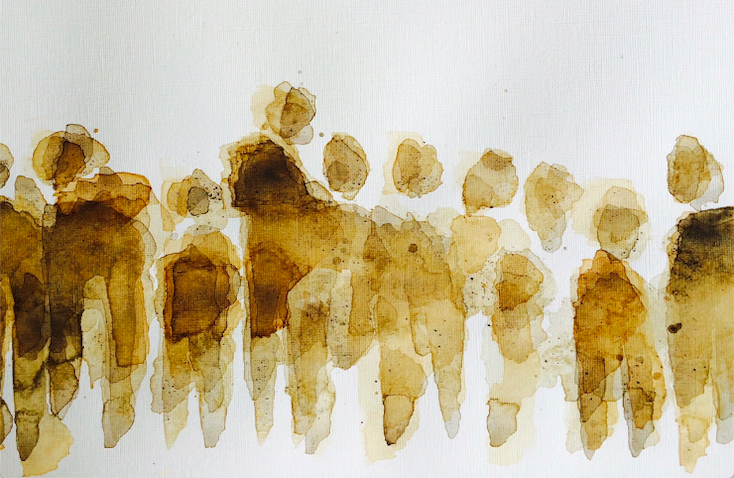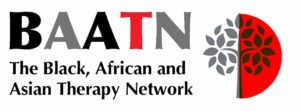Author: Tara Jaffar
Tara Jaffar is an integrative child psychotherapist in training, at the Institute for the Arts in Therapy and Education (IATE), and is also part of IATE’s Diversity| Difference student group. Tara is British-Iraqi, born in Baghdad, and raised between Iraq and the UK.

“Group process for me is about meeting and engaging with my inner community.”Tara Jaffar
Everyone in the group, including the facilitator, represents someone or something of myself, my past in the here-and-now. On the spectrum of awareness, this may be obvious, familiar, or out-my-awareness, a part I’ve safely repressed, and have yet to meet. Who in the group do I identify with and who do I struggle to take in? Who do I admire and who irritates? This is my gateway into understanding how I respond to sameness and difference, and to develop my response-ability (Yontef) in relating to my environment in the here-and-now. This process, for me, is both a microcosm of society, the world-out-there, and a key to my inner world, the diversity group within. How do I respond to being in the minority (the only Muslim, Middle Easterner)? How do I find my voice, my centre, to speak from this position? Equally, as part of the female and able bodied majority in my group, how do I hold those privileges?
My inner community has generations of persecution, war and displacement to wrestle with. I see how my patterns are a response to both my direct experiences, as well as generational ones, and I am learning to respect the coping mechanisms that guarded me when I needed to keep myself ‘safe’. I’ve learned that my safety gauge is tuned differently to the majority I meet today. I remember running aimlessly, as a child in Baghdad, in search of my brother, to the sound of an air-raid siren. The dual tone still rouses a bodily response within me. I breathe. This also means that much of what rattles others slides off my oily skin. Is this resilience and Adversity Activated Development (Papadopoulos), or dissociative coping mechanisms and unresolved trauma? I believe it’s both, depending on the context, and for me, the challenge is to finely tune my inner gauge to meet my client today in the therapeutic space.
Diversity and difference isn’t simply about what’s out there, but what’s happening within. To practice unconditional positive regard (Rogers) towards my client, I need to receive my inner white fragility (DiAngelo) alongside my inner persecutor (Sieff). Can I be with both my wounds and privileges? My frustration, for example, of being a less visible Muslim and BAME, sits alongside my privilege of passing as Caucasian and European. How much of myself can I bring to groups, and can I trust to get it wrong? Can I risk the rupture, and trust the repair? The potential is to emerge, with expanded awareness, with depth and the beauty of a Kintsugi pot, reflective of humanity’s ability to repair and heal.
References:
DiAngelo, Robin (2018), White Fragility: Why It’s so Hard for White People to Talk About Racism. Boston: Beacon Press.
Papadopoulos, Renos (2007), ‘Refugees, trauma and adversity activated development.’ European Journal of Psychotherapy and Counselling, 9 (3). pp. 301-312.
Rogers, Carl (1961). On becoming a person: a therapist’s view of psychotherapy. Boston: Houghton Mifflin.
(2008), Unlocking the Secrets of the Wounded Psyche: Interview with Donald Kalsched, Psychological Perspectives, 51:2, 190-207
Yontef, Gary. (1993) Awareness Dialogue & Process: Essays on Gestalt Therapy. Gestalt Journal Press. Gouldsboro, M.E
